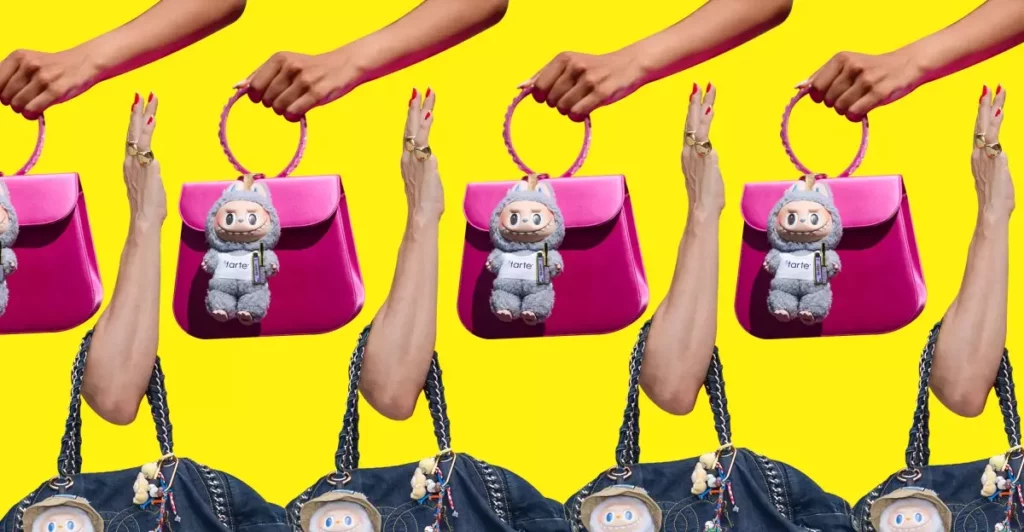In a hyperconnected society obsessed with instant gratification, the phenomenon of collectible toys such as Labubu exposes a disturbing paradox. What begins as a seemingly innocent pursuit of cute figurines has metamorphosed into a convoluted ritual driven by manufactured scarcity, strategic gambling, and collective obsession. This cultural shift from straightforward possession to complex psychological game reveals a disturbing truth: modern consumerism often values the arduous journey more than the actual object. Consumers are manipulated into investing countless hours and mental energy, not for the toy itself but for the fleeting sense of accomplishment derived from overcoming artificial hurdles.
Unlike traditional shopping, where items are readily available and acquisition is straightforward, the process surrounding Labubu collectibles pits participants in a digital battleground. The mechanics are intentionally designed to evoke frustration—randomized drops, limited stock, and so-called ‘secret odds’ prevent anyone from feeling secure of their success. Instead, they foster an addictive state reminiscent of gambling, where hope hinges on luck, timing, and relentless persistence. The consumer becomes a player in a high-stakes game where the real prize is not a toy but the fleeting adrenaline rush of victory. It’s a calculated spectacle that capitalizes on our primal need for challenge and the satisfaction of overcoming odds, even if the odds are artificially inflated.
Psychology of Pursuit: The Cult of Endurance
At its core, this obsession taps into humans’ innate desire for struggle and triumph. In an era where transparency and immediacy dominate our media landscape, enduring the chaos of online hunts provides a contrary thrill—compensating for the lack of authentic achievement elsewhere in society. Sitting in front of screens, refreshing pages ad infinitum, deploying bots, and competing against other collectors—all are modern rites of passage. These rituals evoke a sense of resilience and patience often missing from everyday life, creating an illusion that persistence equates to worth.
Moreover, this cultural ritual is not solely about acquiring a toy; it’s about telling the story of perseverance. Each near-miss, each painstaking attempt, validates one’s dedication and skill. Sharing successes and failures within online communities amplifies this narrative, transforming humble figurines into symbols of resilience and luck. Influencers, forums, and social media feeds turn these pursuits into collective storytelling, blurring the line between playful hobby and compulsive behavior. The narrative becomes self-reinforcing: worth is measured by the adversity faced, not the object owned.
The Dark Side: Obsession, Commodification, and Societal Implications
However, beneath this seemingly innocent quest lies a potential for harm. The mechanics that feed the fervor—artificial scarcity, fake hype, and resale markets—illustrate the commodification of innocence and triviality. Children’s toys, originally designed for joy and simple collection, have become symbols of status and luck. Inflated prices, counterfeit versions, and profit-driven secondary markets turn these collectibles into instruments of exploitation rather than sources of genuine pleasure. What should be a harmless hobby becomes a high-stakes gamble that fosters greed and obsession.
The obsessive pursuit also risks undermining the simple pleasures of childhood. When the act of collecting is fraught with stress, disappointment, and an overwhelming desire to prove oneself, the natural joy of discovery diminishes. The experience shifts from fun to frustration, often feeding addictive tendencies. The relentless chase to secure the next elusive drop fosters a digital environment ripe for compulsive behavior. Many participants feel compelled to monitor multiple devices or pay exorbitant sums—sometimes resorting to bots or hacking—to tilt the odds in their favor, illustrating the extent of commercial manipulation woven into this artificially constructed landscape.
Notably, this cycle reflects broader societal flaws: the obsession with superficial rarity, validation through social media, and the hollow pursuit of status symbols. It reduces childhood innocence to a superficial game of luck and skill, often neglecting the genuine emotional fulfillment that simple joy or genuine connection can provide. By elevating the act of acquiring over the possession itself, society risks fostering a culture that values struggle for its own sake, rather than meaningful achievement.
A Center-Right Critique: Challenging the Pursuit of Superficial Happiness
From a center-right liberal perspective, this obsession reveals much about contemporary values—namely, a misplaced celebration of resilience that is linked to superficial, often manipulative, markets. While resilience and persistence are virtues, they must be rooted in authentic pursuits and genuine value, not manufactured scarcity designed solely to trap consumers in cycles of frustration and longing. The culture surrounding Labubu exemplifies how modern capitalism distorts human virtues, turning patience and perseverance into tools for profit rather than personal growth.
This ongoing cycle underscores a broader societal failure: our collective vulnerability to superficial gratification. When success hinges on luck driven by manipulative algorithms, real virtue—such as effort, integrity, or community—diminishes. The obsession transforms meaningful pursuits into commodified spectacles that ultimately diminish individual well-being and societal health. Instead of encouraging genuine resilience, the current paradigm fosters dependency on manufactured scarcity and dopamine-driven highs, which are ultimately hollow.
A move toward more authentic value systems—focused on community, real achievement, and meaningful effort—is long overdue. Encouraging consumers to step back from this manufactured frenzy and prioritize genuine relationships and real accomplishments could recalibrate societal priorities. Instead of celebrating the thrill of the chase, society should emphasize the importance of intrinsic worth, transparency, and honest pursuits.
Unquestionably, the allure of fleeting victory will persist as long as the digital landscape exploits our psychological vulnerabilities. But acknowledging that the true value of any collectible lies in its genuine significance—rather than in the hype surrounding it—is an essential step toward resisting this modern cult of superficial persistence. The question remains: will society allow itself to be manipulated further by artificial scarcity, or will it reclaim its capacity for authentic, meaningful pursuit? Only time will tell.









Leave a Reply